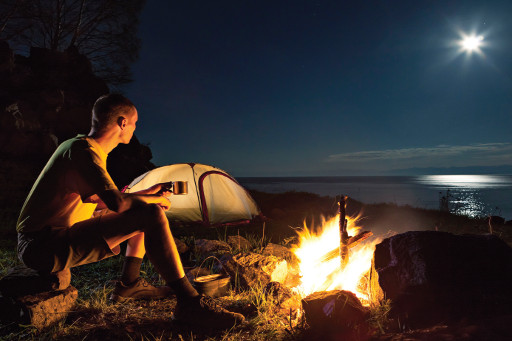Clinical

Travel health in pharmacy
In Clinical
Let’s get clinical. Follow the links below to find out more about the latest clinical insight in community pharmacy.Bookmark
Record learning outcomes

Whatever their destination, travellers will always need health advice, whether that is vaccinations and malaria prophylaxis for a holiday abroad or adequate medicine supplies and a basic first aid kit for a camping break in the UK.
Â
Learning objectives
After reading this feature you should be able to:
- Advise on the contents of a travel health kit
- Ensure customers are equipped to treat common ailments while travelling
- Use advice-driven sales to add value to your service.
Â
ABTA’S travel trends report for 2015 shows that 80 per cent of British people took a holiday in 2014 – a figure that is expected to rise in 2015, with adventure holidays, cruises and long-haul destinations looking to be particularly popular among British holidaymakers.
With that in mind let’s look at some potential pharmacy scenarios, with advice tailored to the customer’s destination and specific health needs:
A woman in her 30s, who takes hormonal contraception, is travelling to the US for a week-long business trip...
Research suggests that there is around one deep vein thrombosis (DVT) for every 4,656 flights that last four hours or more. The risk increases slightly in women who take hormonal contraception or hormonal replacement therapy. “Some women using combined hormonal contraceptives may worry about the risk of deep vein thrombosis if they are going on a long flight,†says FPA ceo, Natika Halil.
“It is important to reassure them that the risk is very small. The contraceptive pill is prescribed with risk factors taken into account; for example older age, being overweight, or a personal history of thromboembolism. “If women are really concerned they should speak to their prescribing nurse or doctor, but it is important to remember that not taking the pill will leave a greater risk of pregnancy, which in itself presents a higher risk of thrombosis.â€
If customers are at a particularly high risk of DVT, their GPs may suggest that they have a heparin injection before a long-haul flight. Otherwise, they should follow general preventative measures, such as wearing flight socks, exercising their legs, ankles and feet to keep their circulation moving, walking around the aircraft and staying hydrated.Â
The timing of medicine doses can be problematic when travelling across international time zones, especially in the case of progestogen-only pills, which need to be taken every 24 hours. Some people may be able to stick with their UK timing, depending on the length of the holiday, or may have to adjust the timing to their destination. Women taking hormonal contraception should be advised to use alternative contraception for the first few days of the holiday while their body adjusts.
Jet lag is often a problem with long-haul travel, but customers should be warned to avoid taking sleeping tablets, as these may make it harder to adjust to a new time zone. “Melatonin is a natural hormonal substance that plays a role in the body’s circadian rhythms,†says RPS English Pharmacy Board member Liz Butterfield.
“It is available over the counter in the US for jet lag but not in the UK, and some customers may buy it for the journey home. However, it is preferable that customers try to adapt to time zones themselves, such as exercising in natural daylight when they arrive.â€
A 70-year-old woman with diabetes is flying to Miami before embarking on a Caribbean cruise...
According to the Civil Aviation Authority, air travel shouldn’t pose significant problems for customers with well-controlled diabetes. However, heightened airport security means that customers should plan ahead as they need to carry all their equipment and medication in their hand luggage. “Customers may need a letter from their GP to explain why they are carrying syringes, needles and insulin,†says Liz Butterfield.
“Ideally, insulin shouldn’t go in the hold, as it is important to avoid high and low temperatures. Customers should know to watch out for crystals in insulin, which indicates that it is no longer stable. “Most insulin can be safely stored out of the fridge at room temperature in a cool bag. Blood glucose testing is important, so customers should pack enough strips and make sure their glucose meter battery is charged for the whole holiday.â€
On a cruise, there can be issues around a healthy diet, the timing of meals and keeping glucose levels stable. If customers are being more or less active than usual, they may need to adjust their insulin levels. Cruise ship ‘outbreaks’ regularly appear in the news.
Norovirus, which causes nausea, vomiting and diarrhoea, spreads quickly from person to person, and can also be transmitted in food and water. Usual food hygiene measures apply to reduce the risks of catching an infection. Customers with diabetes should pack a supply of oral rehydration sachets and if they develop norovirus, they should keep themselves well hydrated and seek medical advice, as their blood sugar levels can be affected.
Customers who are going on a cruise or boat trip may wish to pack OTC antihistamines to prevent/manage seasickness, although they should be warned that these can cause drowsiness. Acupressure bands on the wrist may be helpful, especially if customers have a chronic condition (such as diabetes) and wish to avoid taking any more medication.
When flying, insulin should not go in the hold, as it is important to avoid high and low temperatures
A 19-year-old backpacker is travelling around south-east Asia for six months...
Customers who are travelling to exotic or far-flung locations may need specific vaccinations and advice on malaria prophylaxis before they leave, depending on their destination. They will need a comprehensive first aid kit, supplies of essential medicines, including those required for chronic medical conditions, and water sterilisation tablets and sterile needles. Dr Ajai Seth, medical adviser to Classic Tours, suggests that backpackers minimise bulk and weight by carrying appropriatelysized quantities of their chosen items.
“A sample first aid kit for a solo hiker on a five-day trip may include general purpose breathable surgical tape for blisters and cuts, antiseptic or alcohol wipes, sterile non-stick absorbent dressing/gauze, antibiotic cream, ibuprofen tablets, antihistamine tablets, a tiny roll of duct tape, a small utility tool with a knife, scissors and tweezers, an emergency fire starter and a small whistle,†he says.
“They should also consider adding in a broad spectrum antibiotic, an antidiarrhoeal medicine, rehydration solution sachets and antihelminths – for example, for giardiasis.â€
According to FPA CEO Natika Halil, pharmacists may wish to discuss sexual health with customers of all ages, but particularly younger travellers. Some contraceptive methods are not available in other countries, especially in remote areas. “It is a good idea to take a supply that will last,†she says. “Pharmacists could also suggest an advance supply of emergency contraceptive pills, as these may be much more difficult to access within a small timeframe abroad.â€
For both men and women, it is always a good idea to pack condoms, even if it is ‘just in case’, and people should take their favourite quality-tested brand from the UK. It is also worth reminding customers that condoms can be damaged by oil-based products, including sunscreen, as well as heat.
A young family is going to a holiday resort in southern Spain. The eight-year-old daughter has a nut allergy...
Although sun care advice is essential for a beach holiday, it applies in any hot location, especially if families are travelling with young children or older people. “Many cases of malignant melanoma, the most serious form of skin cancer, are preventable by taking precautions in the sun and making sure people don’t burn,†says Dr Julie Sharp, Cancer Research UK’s head of health information.
“Sun damage accumulates over time so avoiding sunburn – and sunbeds – is key, as well as getting to know your skin type so you don’t overdo it on the beach or even in the garden.â€
It is advisable not to cover the skin if anyone develops sunburn. “They should keep well hydrated, take cool baths and use SPF30 sunscreens – SPF50 for young children,†says Liz Butterfield. “Useful first aid products include hydrocortisone cream for bites and stings for the over-10s, crotamiton cream for itching, antiseptics for injuries, and antihistamines for allergic reactions, such as bites or heat rash. Rehydration therapy sachets can help with dehydration, especially with young children.â€
If customers have a nut allergy, they should obtain a letter from their doctor about carrying adrenaline pens. “Adrenaline shouldn’t get too hot and needs to be stored appropriately,†says Butterfield. “It is a good idea to have medical ID jewellery, so that everyone is aware that the child has an allergy and what they are allergic to. Any medication can then be administered immediately, especially if children are being left in kids’ clubs.â€
Â
Category management tips
According to Emma Charlesworth, Numark’s communications manager, pharmacies should create a ‘one stop’ travel feature, not limited to sun preparations and skincare. “Include everything customers may need when going on holiday,†she says. “Do the thinking for them. Don’t simply ‘pack and wrap’.â€
Consumers purchase from pharmacy because they want and expect advice – packing and wrapping is for grocers, not pharmacy, she says. And use your USP (advice-driven sales) to add value to your service. “Don’t assume that, because a customer has chosen a product, it is the right one for them. Offer advice on self-selected products even if your customers don’t ask for it.â€
The following tips will help pharmacists to make the most of the holiday health season:
- If you offer full travel services (e.g. vaccinations), highlight these with both in-store and window displays, and market them to local businesses to increase footfall. Place leaflets around the travel health fixture to remind customers they can ask for advice
- When undertaking a MUR, ask if the customer has any holiday plans (UK or abroad) to make sure they have enough supplies for their trip. Customers need to be aware that some prescription medicines are restricted in certain countries
- Advise customers on treating common ailments while travelling by suggesting self-help tips and recommending appropriate products
- Put together a few ready-made holiday health kits for customers, with basic essentials, and then tailor them to suit specific needs. Remember that some customers may prefer cheaper generic products, rather than established brands
- Make sure you stock a range of travel-related products – not just suitable medicines, but also things like travel adaptors and mosquito repellents
- Stock travel-sized products, as security measures mean that liquid medicines need to be in small bottles if they are being taken onto the plane in hand luggage
- Holidays are not limited to school breaks, so ensure you keep a smaller range of travel health products all-year-round.
Â
A middle-aged couple is going hiking and camping...
Lyme disease is becoming increasingly common in the UK, especially in rural areas. Public Health England estimates suggest that there could be up to 3,000 new cases every year. According to the charity Lyme Disease Action, pharmacists should raise awareness of the condition (and its symptoms) and recommend that customers use DEET-containing insect repellents, wear long trousers and carefully check for ticks after being out and about. This applies whether people are in a city back garden clearing leaves or in the heart of the countryside.
Walking is one of the gentlest and safest forms of physical activity, but injuries can happen. “Supportive, well-fitting and cushioned athletic shoes are the vital piece of equipment for injury-free walking,†says Dr Seth. “Good shoes will support the foot and promote a natural gait or walking pattern. Blisters occur from shear force, pressure and moisture affecting the interface between the foot and the shoe. Studies have shown that synthetic-fibre socks decrease blisters when compared to cotton socks. This is because cotton tends to absorb moisture and increase friction.â€
When camping, it is important to stick to good food hygiene practices to avoid food poisoning. According to the Food Standards Agency, cases of food poisoning almost double during the summer months. “Be careful with food storage, especially in the heat, as well as cooking food thoroughly,†says Liz Butterfield.
“Oral rehydration therapy is the first-line treatment for vomiting and diarrhoea. Antidiarrhoeals may be useful in the short-term, but the body needs to be able to get rid of an infection. If someone has a long-term condition such as diabetes, a heart condition or high blood pressure, or is taking diuretics, and they have vomiting or diarrhoea, they should visit their pharmacist or doctor for advice to avoid dehydration.
“The NHS ‘Think Kidneys’ campaign (thinkkidneys.nhs.uk) aims to reduce the cases of acute kidney injury in the UK. Older people especially should keep hydrated, take regular exercise where possible and eat a balanced diet.â€
Â

Health precautions are needed even when camping
Â
Key facts
- Cases of food poisoning almost double during the summer months, says the Food Standards Agency
- Sun damage accumulates over time, so avoiding sunburn – and sunbeds – is key
- Travel-sized products should be stocked in the pharmacy, as liquid medicines need to be in small bottles if they are being taken onto a plane in hand luggage
Â
A 50-year-old man, who suffers from asthma, is taking part in Hajj and Umrah pilgrimages...
In 2015, the Hajj holy pilgrimage is expected to fall in September. Umrah is a shorter pilgrimage that can be performed at any time of the year. Both pilgrimages can be an arduous undertaking for even the fittest people, and most customers will benefit from a general health check-up with their GP before their trip.
This is particularly important if would-be travellers have any underlying health problems. “The Hajj is the largest annual international gathering, with more than two million Muslims travelling from around the world to make the pilgrimage,†says Dr Brian McCloskey, director of global health at Public Health England. “This includes thousands from the UK. A large population confined to one area has historically increased the risk of infectious disease outbreaks, in particular respiratory infections.â€
The ministry of health of Saudi Arabia recommends that all pilgrims are vaccinated against seasonal flu. They also have to show proof of vaccination against four meningococcal meningitis strains. In the UK, visas will not be issued unless proof of vaccination, at least 10 days before the expected date of entry, is submitted with the visa application.
Pilgrims are also advised to ensure that their polio vaccination is up-to-date. In Mecca and Medina, the risk of malaria is relatively low but the journey between the two cities is high risk, and customers should be advised about bite avoidance measures and malaria prophylaxis. Other significant health risks include hepatitis B, rabies, diarrhoeal disease and severe respiratory illnesses.
In December 2014, scientists at the American Geophysical Union reported that dangerously high levels of air pollutants are released in Mecca during Hajj, as millions of Muslims on foot and in vehicles converge on the Saudi Arabian city. The researchers found that the worst spot was inside the Al-Masjid Al-Haram tunnel, where pilgrims on foot are exposed to fumes from idling vehicles, often for hours at a time. “A medicines use review pre-departure is a good idea in the case of asthma and other respiratory problems,†says Liz Butterfield.
“Most people should have a care plan in place and will know what to do if their breathing gets worse. It is important that inhalers are carried at all times. If there is a lot of smog or pollution, they should consider wearing a facemask. To prevent respiratory infections, pharmacists should offer general advice on hand washing, disposal of tissues and general contact.
Â

The Hajj holy pilgrimage can be arduous for even the fittest people
